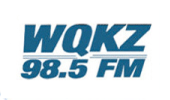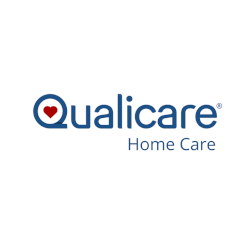 WITZ Banner ad 2020 2_18_2020.jpg
WITZ Banner ad 2020 2_18_2020.jpg
WHAT YOU NEED TO KNOW: Indiana to Begin Lifting COVID-19 Restrictions Next Week
By: David Shepherd, News Director
STATEWIDE -- The state is ready to move ahead "in a measured way to begin opening our state," Mr. Holcomb said Friday afternoon during his daily COVID-19 briefing.
He hopes to have Indiana back on track by July 4th.
“Across Indiana, we have witnessed a spirit of cooperation and caring for others that has touched my heart. May this spirit of appreciation for one another carry on long after the scourge of COVID-19 is behind us,” Gov. Holcomb said. “Hoosiers have done this together and together we will come out a stronger Indiana.”
The governor, Friday, laid out four guiding principles that will determine if stages to reopen various sectors of the economy will move forward:
- The number of hospitalized COVID-19 patients statewide has decreased for 14 days
- The state retains its surge capacity for critical care beds and ventilators
- The state retains the ability to test all Hoosiers who are COVID-19 symptomatic, as well as healthcare workers, essential workers, first responders, and others as delineated on the ISDH website
- Health officials have systems in place to contact all individuals who test positive for COVID-19 and complete contact tracing
State officials will begin rolling out Stage 2 of the Indiana Back on Track plan on Monday, May 4th. During this phase, those 65 and older and those with underlying health conditions are being encouraged to stay at home as much as possible.
Groups / gatherings of up to 25 people will be allowed. Those who are able to work from home are still encouraged to do so as much as possible.
Retail stores can resume operations at 50% capacity while practicing social distancing starting May 4th. Examples include apparel, furniture, jewelry and liquor stores that have been operating as curbside or delivery only. Shopping malls can open at 50% capacity with indoor common areas restricted to 25% capacity.
Stores must limit the number of customers in a store at any one time and assign staff to monitor capacity.
Also....
• Ensure 6 feet between employees. If this is not possible, install barriers
• Required to develop a protocol to screen employees before they commence work
• Require symptomatic employees to stay home and recommend they be tested
• Train employees on importance of hygiene and sanitation; provide regular updates about personal COVID-19 mitigation and store safeguards
• Highly recommend face coverings for employees
• Clean high-touch items after each use (e.g. carts, baskets, door handles)
• Group employees by shift to reduce exposure to others
• Prohibit groups from gathering in break rooms or common areas and limit capacity
• Place hand sanitizers in high-contact locations (e.g. register, entry, exit)
• Place signage telling guests to not enter if they are symptomatic or if they have tested positive
• If available, offer face coverings for shoppers (e.g. masks, scarfs, surgical mask)
• Designate hours for at-risk populations (e.g. elderly and those with underlying health conditions)
• Consider one-way aisles and traffic patterns
• Increase or maintain delivery, curbside pickup, to-go orders
• Implement no-touch payments, if possible
PRODUCTS AND SPACES
• Clean merchandise before stocking, if possible
• Self-service food stations, beverage refi lls, and product samples should not be offered
• Food courts should remain closed for dine-in services until May 11, then at 50% capacity
• Disinfect high-contact surfaces regularly
• Clearly post social distancing signage to advise employees and guests of requirements and best practices
• Close regularly for deep cleaning
• Maximize spacing at checkout by providing spacing lines or alternating checkout lines
Starting May 8th, religious services in the state may resume while practicing social distancing. Those over 65 or who have other health conditions are encouraged to continue viewing services remotely from home. Places of Worship are Encouraged to Conduct as Many Activities as Possible Remotely Places of worship should continue using livestream, virtual services, and drive-in services, according to the state's new guidance.
Restaurants and bars can reopen on May 11th, practicing social distancing and operating at 50% capacity. Bar seating must remain closed. Essential travel restrictions will be lifted. Remaining manufacturers that were not considered essential will be able to open.
Personal care shops like hair salons, spas, barber shops and tattoo parlors can resume services by appointment only and while practicing social distancing.
CLICK HERE to read the governor's full, 5 step plan to reopen the state by July 4th








